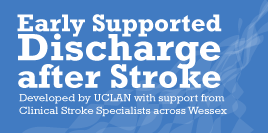 |
Sexual dysfunction |
Decrease in libido
- Both may find that libido (sex drive) is lessened due to tiredness, anxiety, depression, doubts about self-image and concerns for the future
- A woman may find that sexual arousal takes longer after her stroke. There may be a loss of sensation or a degree of vaginal dryness, which may hinder sexual activity
- A man is more likely to be concerned if he finds he is unable to achieve or sustain an erection. This can happen after a stroke for many reasons but it is also common after any serious illness. After a stroke, even if one side of the body has been affected, the nerve processes involved on the unaffected side are usually enough to sustain an erection
- The side effect of some prescribed antidepressants, conditions such as diabetes and prostate problems may also cause erection problems in men. These types of problems may require further intervention by a GP and/or specialist
Increase in libido
- A minority of people experience an increased libido and sexual activity after a stroke. This could be explained by improved relations with their partner and by improvement in the emotional and social aspects experienced
- Very rarely a stroke can cause a disorder called hyper-sexuality, which can be related to the area of brain damaged by the stroke. This is described as an abnormal, increased sexual desire
 |
 |
 |